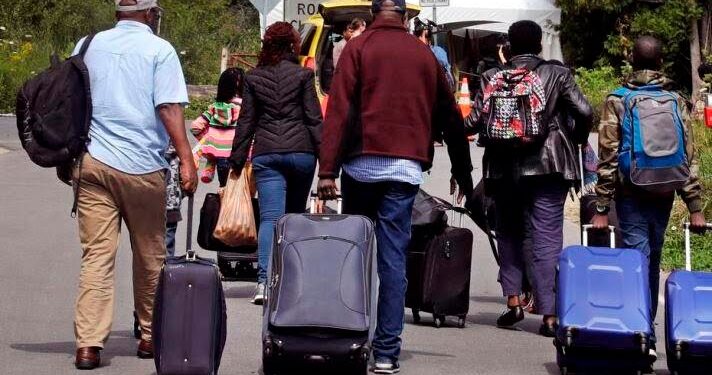A new report by Policy Exchange, a centre-right British think tank, has raised alarm over the increasing use of UK university courses by international students as a “backdoor” route to long-term settlement in the United Kingdom.
The report, released on Thursday, July 4, argued that the current student migration framework is being exploited by individuals who are more interested in migrating than studying, calling for a radical overhaul of the graduate visa route.
The graduate visa route, introduced to attract international talent, currently allows foreign graduates to stay in the UK and work for up to two years post-study. However, the think tank is urging that this opportunity be reserved only for postgraduate research students, saying the broader access to the visa has opened the door for immigration abuse.
“Most fundamentally, the purpose of student migration should be to study, not to provide a backdoor route to longer-term migration or settlement,” the report reads. “Yet increasingly, studying in the UK has become a pathway for widespread and sustained immigration.”
According to the report, the number of international students in the UK has surged by 66% between the 2014/15 and 2023/24 academic years. More notably, the rate of students switching to other visa categories within one year of arriving jumped to 40% in 2023 — a stark rise from just 3% in 2019.
Zachary Marsh, a research fellow in education and author of the report, argued that universities must return to their core mandate: “UK universities must return to the business of selling education, not immigration. A more muscular approach is needed to restore public confidence that international students are good for our universities and wider economy.”
This report comes amid ongoing policy debates. In May, the Labour Government proposed reducing the graduate visa period from two years to 18 months. This followed earlier reforms by the former Conservative government in January 2024, which banned most international students from bringing dependants — with exceptions for select postgraduate and government-sponsored courses.
Still, Policy Exchange contends these reforms are insufficient and is pushing for tougher regulations.
Concerns Over Displacement and Public Resources
The report also warns that international students might be “crowding out” UK nationals at some universities, raising concerns about the use of taxpayer funds and the effectiveness of the higher education system in supporting domestic students.
Shadow Education Minister Neil O’Brien, expected to speak at a Policy Exchange event in London, is likely to echo these concerns. “Too many students are being ripped off and we have to ask whether there are better uses of taxpayers’ money,” he was quoted as saying.
In response, Tim Bradshaw, chief executive of the Russell Group — which represents the UK’s leading research universities — defended the graduate visa route. “In an increasingly competitive global market, the UK needs to maintain an attractive offer for international students,” he said, adding that universities are committed to eliminating abuses of the system.
A government spokesperson reiterated the UK’s stance on tightening immigration: “We will also crack down further on abuse of our immigration system by strengthening requirements for universities, requiring tighter enforcement on visa approvals, course enrolments, and student completions.”
Despite mounting criticism, the government maintains it will continue to welcome genuine international students who contribute meaningfully to the UK’s academic and economic landscape.




















































































 EduTimes Africa, a product of Education Times Africa, is a magazine publication that aims to lend its support to close the yawning gap in Africa's educational development.
EduTimes Africa, a product of Education Times Africa, is a magazine publication that aims to lend its support to close the yawning gap in Africa's educational development.

